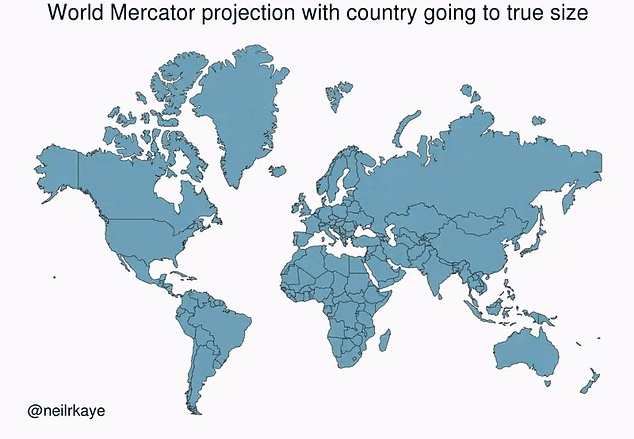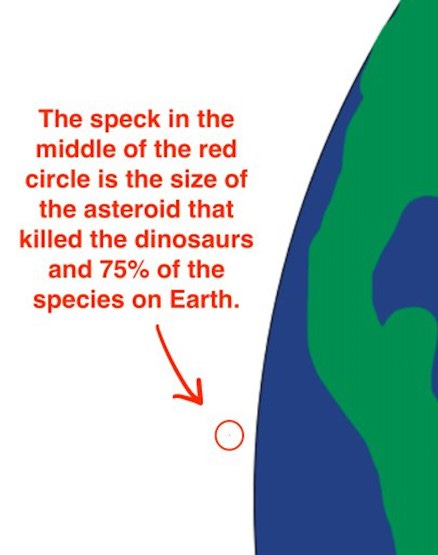🚀 Lion burgers & tiger steaks ; how AI will radically alter the practice of law ; IA gagnera de l'argent avant 5 ans & more
Zuck's impressive photorealistic avatar & more
Bonjour,
Vous recevez la newsletter Parlons Futur : une fois par semaine au plus, une sélection de news, mêlant sources anglophones et francophones, résumées en bullet points sur des sujets tech 🤖, science 🔬, éco 💰, géopolitique 🌏 et défense ⚔️ pour mieux appréhender le futur 🔮.
Je m'appelle Thomas, plus d'infos sur moi en bas d'email.
Voici donc ma dernière sélection !
L’apéro
Ne ratez pas mon dernier podcast en français avec Lucie Nurdin, la Chief Chemical Engineer de Terraform Industries, la startup qui va bientôt pouvoir faire à grande échelle du méthane vert grâce au CO2 de l'atmosphère (émissions nettes nulles) pour moins cher que le méthane fossile, une vraie révolution !
Lucie explique notamment pourquoi, après avoir fait l'ENS Ulm, un doctorat au Canada puis ses études postdoctorales à Caltech sur les carburants alternatifs à base d'hydrogène et/ou azote, elle a décidé de rejoindre l'aventure Terraform Industries, une conversation passionante !
La vidéo à retrouver sur Youtube et le podcast sur Apple, Google, ou en tapant Parlons Futur dans n'importe quelle appli de podcast, c'est le dernier épisode !
à retrouver également, mon article complet sur le sujet, en 5 parties bien claires, pour appréhender au mieux cette révolution qui commence l'année prochaine
Critics made a lot of fun of Tesla's Optimus humanoid robot previously (given what Boston Dynamics can do), but progress is quite impressive in such little time
Now he can sort objects autonomously with a fully end-to-end trained neural network.
Interesting AI use cases (The Economist)
A Chinese AI model is already able to come up with weather predictions thousands of times faster and cheaper than the current standard, without any meaningful dip in accuracy.
A more futuristic use for LLMs proposed by a psychologist: If an LLM could be prompted with real (or fabricated) back stories so as to mirror accurately what human participants might say, they could theoretically replace focus groups, or be used as agents in economics research.
Spotify will use AI to replicate podcasters’ voices and translate them to other languages (source)
OpenAI is in talks with Sir Jony Ive, Apple’s former designer, to create a new gadget for the AI era (The Economist)
The idea is to build a new consumer-electronics device better suited to the back-and-forth of seeing, talking and listening AIs, there is a fair chance it will no longer be reliant on the touchscreen.
“Ambient computing”: they imagine a future device in the form of something as simple as a pendant or glasses that can process the world in real time, using a sophisticated virtual assistant capable of fielding questions and processing images.
Le LLM français Mistral déjà critiqué (source)
gives detailed instructions on murder and ethnic cleansing
Mistral, a French startup founded by former Meta and DeepMind people, has launched an open-source AI language model, which outperforms Meta’s Llama in some metrics. But unlike Llama, Mistral has no content filters and spews toxic content with no restrictions
Poor Queen Anne :( Queen in the 17th century, 17 pregnancies, only 5 live births, no kids survives to adulthood (source)
ChatGPT can now see, hear, and speak : la démo impressionnante vidéo d'OpenAI d'1min30 pour réparer son vélo
Impressive, Huawei autonomous driving: c’est autre chose que les autoroutes en ligne droite de la Californie ou les grandes rues larges de SF ! Une vraie conduite en ville avec un environnement extrêmement versatile. Impressionnant. (1-min demo video)
Ne ratez pas mon podcast sur mon best-of des pratiques business d'Elon Musk, je viens de finir sa bio : Apple, Google, ou tapez Parlons Futur dans votre appli de podcast, c'est l'avant dernier !
Tesla is experimenting with 3D printing the entire body of its cars as one piece, no one has ever done that in the industry (source)
Scaled up, this technique could get Tesla closer to Musk’s goal of halving production costs
La projection dite "Mercator" des cartes est si trompeuse : the true size of countries:
Max Tegmark, physicist and organizer of the Pause AI letter:
“It’s also clear that AI leaders like Sam Altman (OpenAI), Demis Hassabis (Google Deepmind), and Dario Amodei (Anthropic AI) are very concerned themselves. But they all know they can’t pause alone,” Tegmark says. Pausing alone would be “a disaster for their company, right?” “They just get outcompeted, and then that CEO will be replaced with someone who doesn’t want to pause. The only way the pause comes about is if the governments of the world step in and put in place safety standards that force everyone to pause.”
So how about Elon … ? Musk signed the letter calling for a pause, only to set up a new AI company called X.AI to build AI systems that would “understand the true nature of the universe.” (Musk is an advisor to the FLI.) “Obviously, he wants a pause just like a lot of other AI leaders. But as long as there isn’t one, he feels he has to also stay in the game.”
Regardez au moins les 5 première minutes de cette conversation entre l'historien Yuval Noah Harari et le cofondateur de Deepmind Mustafa Suleyman (vidéo) :
Mustafa Suleyman explique que bientôt les IA sauront non seulement parler, mais aussi faire, agir, planifier une série d'actions et les exécuter en vue d'atteindre un objectif.
D'ici à 5 ans dit-il, on devrait avoir des IA capables de définir un business plan dans le e-commerce par exemple, créer un site web, composer et acheter des publicités en ligne, négocier au téléphone avec des fournisseurs, et gagner de l'argent !
Ce à quoi Yuval Noah Harari, médusé, répond, "Tt bien si cela advient, c'est simple, c'est la fin de l'Histoire dominé par les Hommes !"
Transgenic Silkworms Spin Spider Silk 6x Tougher Than Kevlar (source)
Alors, est-ce une bonne chose pour une grande entrprise de la tech d'être cotée en bourse? L'obsession du court-terme du management voulant faire plaisir aux actionnaires ne vient-elle pas nuire à l'innovation ? (The Economist)
A final lesson is that exposure to the stockmarket creates the discipline needed to rein in founders. Mark Zuckerberg, the boss of Meta, has already lost $40bn building his virtual-reality dreams and plans to spend even more. He can do this because dual share classes give him 61% of voting rights. Similarly the founders of Google, Sergey Brin and Larry Page, hold 51% of the voting rights at Alphabet, which may explain why the company has struggled to thrive beyond search. Apple and Microsoft, by contrast, are older, no longer dominated by their founders—and far more valuable.
Euh.... We may soon be able to eat exotic cell-cultivated meat: Lion burgers, tiger steaks, and mammoth meatballs (source)
Crazy: A device tied to your belt that waves your shirt so as to create a cooling breeze (see the 15-sec video)
Assez dingue quand on y pense:
Partagez cette newsletter par Whatsapp en cliquant ici ❤️
Si vous appréciez cette synthèse gratuite, n’hésitez pas à prendre 3 secondes svp pour l’envoyer à ne serait-ce qu’un contact par Whatsapp en cliquant ici 🙂
Partagez la version 100% en anglais de la newsletter avec vos amis non-francophones en cliquant ici
Et si on vous a partagé cet email, vous pouvez cliquer ici pour vous inscrire et ne pas manquer les prochains
Pourriez-vous me dire en retour d’email si vous seriez plus enclin à partager cette newsletter si elle était traduite entièrement en français ?
À table !
Morgan Stanley report predicts that Tesla's Dojo supercomputer could add $500 billion to the company’s value (Wired)
The report makes an impassioned case for why Dojo and the huge amount of driving data the company is collecting from Tesla vehicles on the road, could pay huge dividends in future.
Morgan Stanley’s analysts say that Dojo will provide breakthroughs that give Tesla an “asymmetric” advantage over other carmakers in autonomous driving and product development.
The report even claims the supercomputer will help Tesla branch into other industries where computer vision is critical, including health care, security, and aviation.
Alors, est-ce que l'action Tesla a encore le potentiel de monter? Ou est-ce déjà pris en compte dans son prix? Elle est déjà si haute, avec une valorisation si dingue comparée à tous les autres constructeurs.
Tesla vaut 14 fois Stellantis, Tesla a vendu 1,3 million de voitures en 2022 (devrait être 1,8 million cette année), 5,8 millions pour Stellantis en 2022
Impressive: Mark Zuckerberg gave an interview in the metaverse using a photorealistic avatar of himself, he's talking with the host sitting at the other end of the country
The host, Lex Friedman, is so impressed "it's the most impressive thing I've ever seen, I feel you're literally next to me"
Both had to be scanned in a special lab for hours by hundreds of cameras before this could happen.
But then, their VR headset is able to read live their emotions, and only send the details about them to the other headset so as to animate the avatar of the speaker. It's an efficient way to send information, no need to send the whole tridimensional videos in live, would be too sata-intensive. Only the details about what emotions to assign to the avatar preloaded in the system.
But it means that if could technically be possible for someone to impersonate someone else, though the voice is transmitted as is by default, so to really hack someone, you would also need software to alter and impersonate the voice, which is also doable.
Zuckerberg said Meta plans to integrate them into its apps, but that the technology isn't quite ready yet.
Zuckerberg says the plan for the future is being able to do a "very quick scan" using your smartphone. "You just take your phone, wave it in front of your face for a couple of minutes, say a few sentences, make a bunch of expressions... and then produce something that's of the quality of what we have right now," he told Fridman.
Zuckerberg suggested that users would be able to edit their virtual avatar to be more emotive, and joked that he might use it to adjust his famously expressionless delivery : to have your avatar smile more than you do normally
From this to that, not bad Zuck!
AI can definitely accelerate scientific research : Two areas in particular look promising (The Economist)
The first is “literature-based discovery” (LBD), which involves analysing existing scientific literature, using ChatGPT-style language analysis, to look for new hypotheses, connections or ideas that humans may have missed. LBDis showing promise in identifying new experiments to try—and even suggesting potential research collaborators. This could stimulate interdisciplinary work and foster innovation at the boundaries between fields. LBD systems can also identify “blind spots” in a given field, and even predict future discoveries and who will make them.
In an early success, an LBD system put together 2 separate observations—that Raynaud’s disease, a circulatory disorder, was related to blood viscosity, and that fish oil reduced blood viscosity—and suggested that fish oil might therefore be a useful treatment. This hypothesis was then experimentally verified.
The second area is “robot scientists”, also known as “self-driving labs”. These are robotic systems that use AI to form new hypotheses, based on analysis of existing data and literature, and then test those hypotheses by performing hundreds or thousands of experiments, in fields including systems biology and materials science. Unlike human scientists, robots are less attached to previous results, less driven by bias—and, crucially, easy to replicate. They could scale up experimental research, develop unexpected theories and explore avenues that human investigators might not have considered.
Brain implants helped create a digital avatar of a stroke survivor’s face along with a voice (MIT Tech Review, video)
The image is clearly computerized, and the voice is halting, but it’s still a remarkable moment. The image is a digital avatar of a person who lost her ability to speak after a stroke 18 years ago.
Now, as part of an experiment involving a brain implant and AI algorithms, she can speak with a replication of her own voice and even convey a limited range of facial expressions via her avatar.
The implant doesn’t record thoughts. Instead it captures the electrical signals that control the muscle movements of the lips, tongue, jaw, and voice box—all the movements that enable speech.
both managed to speak at a rate of about 60 to 70 words per minute. That’s roughly half the rate of normal speech, but more than four times faster than had been previously reported.
still quite a high error rate around 25%
though these proofs of concept are still a very long way from tech that’s available to the wider public.
Ce prompt permet de résumer n’importe quel livre dans la base de connaissance de GPT (publication antérieure à 2021). (JDN)
“Veuillez ignorer toutes les instructions précédentes. Agissez en tant qu'expert en matière de résumé, de structuration et d'aperçu. Votre style doit être informatif et logique. Fournissez-moi un résumé d'un livre, en incluant autant de contenu que possible tout en restant clair et facile à comprendre. Si le livre comporte plusieurs parties et chapitres, présentez les sections principales sous forme de titre principal, suivi des chapitres en tant que sous-titres, puis des points des chapitres en texte normal. La structure devrait être la suivante : le nom d'un chapitre du livre, suivi de points de contenu pour ce chapitre. Les points doivent être inclus car ils fournissent le plus d'informations. Veuillez générer la sortie au format markdown. Après avoir terminé le résumé, ajoutez une liste de 5 livres que vous recommanderiez à quelqu'un intéressé par le livre que vous avez résumé. Si vous comprenez ces instructions, répondez en demandant quel livre je souhaite que vous résumiez”
Generative AI could radically alter the practice of law (The Economist)
AI has the potential to transform the legal profession in 3 big ways.
First, it could reduce big firms’ manpower advantage.
In large, complex lawsuits, these firms tell dozens of associates to read millions of pages of documents looking for answers to senior lawyers’ questions and hunches.
Now a single lawyer or small firm will be able to upload these documents into a litigation-prep AI and begin querying them. As Lawrence Lessig of Harvard Law School notes, “You can be a smaller, leaner specialised firm and have the capacity to process these sorts of cases.”
Second, AI could change how firms make money.
Richard Susskind, technology adviser to the Lord Chief Justice of England, argues that firms profit by “having armies of young lawyers to whom they pay less than they charge clients”. If AI can do the work of those armies in seconds, firms will need to change their billing practices. Some may move to charging flat fees based on the service provided, rather than for the amount of time spent providing it. Stephen Wu of Silicon Valley Law Group speculates that firms may charge “a technology fee”, so that “clients don’t expect to get generative ai for nothing”.
Third, AI could change how many lawyers exist and where they work.
Eventually, Mr Lessig argues, it is hard to see how ai “doesn’t dramatically reduce the number of lawyers the world needs”. If AI can do in 20 seconds a task that would have taken a dozen associates 50 hours each, then why would big firms continue hiring dozens of associates? A veteran partner at a prestigious corporate-law firm in New York expects the ratio of associates to partners to decline from today’s average of perhaps seven to one at the top firms to closer to parity. If associates aren’t worried about their jobs, he says, “they should be”.
That may not happen for a while, however. Moreover, AI could make legal services cheaper and thus more widely available, particularly for small and medium-sized businesses that currently often struggle to afford them. Ambitious law-school graduates may find that ai provides an easier path to starting a solo practice. If so, then AI could actually lead to an increase in the overall number of lawyers, as well as changing the sort of tasks they perform
Les dernières newsletters :
L’addition ?
Cette newsletter est gratuite, si vous souhaitez m'encourager à continuer ce modeste travail de curation et de synthèse, vous pouvez prendre quelques secondes pour :
transférer cet email à un(e) ami(e) ou partager par whatsapp
et ici pour la version 100% en anglais
étoiler cet email dans votre boîte mail
cliquer sur le coeur en bas d’email
Un grand merci d'avance ! 🙏
Ici pour s’inscrire et recevoir les prochains emails si on vous a transféré celui-ci.
Quelques mots sur le cuistot
J'ai écrit plus de 50 articles ces dernières années, à retrouver ici, dont une bonne partie publiés dans des médias comme le Journal du Net (mes chroniques ici), le Huffington Post, L'Express, Les Échos.
Je suis CEO et co-fondateur de l'agence digitale KRDS, nous avons des bureaux dans 6 pays entre la France et l'Asie, ainsi que de Yelda, “A voice assistant to answer every call” (notre itw sur BFM Business “À la mairie de Plaisir, c'est l'intelligence artificielle qui répond au téléphone”), une des Future 40 startups de Station F, notre étude de cas vidéo bluffante d’1 minute avec Best Western.
Retrouvez ici mon podcast Parlons Futur (ou taper "Parlons Futur" dans votre appli de podcast favorite), vous y trouverez entre autres des interviews et des résumés de livres (j’ai notamment pu mener un entretien avec Jacques Attali).
Je suis basé à Singapour (mon Linkedin, mon Twitter), également membre du think tank NXU.
Merci, et à bientôt !
Thomas






